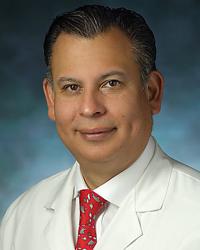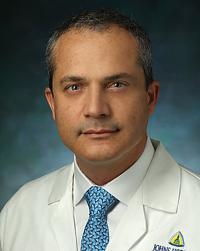Research Lab Results
-
Courtney Robertson Lab
Work in the Courtney Robertson Lab is focused on identifying interventions that could minimize the neurological deficits that can persist after pediatric traumatic brain injury (TBI). One study used a preclinical model to examine potential disruption of mitochondrial function and alterations in cerebral metabolism. It was found that a substantial amount of mitochondrial dysfunction is present in the first six hours after TBI. In addition, we are using nuclear magnetic resonance spectroscopy to evaluate global and regional alterations in brain metabolism after TBI. We're also collaborating with researchers at the University of Pennsylvania to compare mitochondrial function after head injury in different clinically relevant models. -
Elizabeth Daugherty Lab
The Elizabeth Daugherty Lab conducts research on patient safety, critical care infection control and critical care disaster response. We investigate methods of improving patient safety through improved infection control, with a focus on clinical outcomes, nosocomial infection rates and the individual and organizational obstacles to personal protective equipment adherence.
-
William Checkley Lab
Research in the William Checkley Lab explores the field of lung health, with an emphasis on the epidemiology of obstructive lung diseases as well as acute lung injury and mechanical ventilation. We also explore the interactions between nutrition and infection, and the impact of environmental exposures to health.
-
Outcomes After Critical Illness and Surgery Group
The Outcomes After Critical Illness and Surgery Group is focused on understanding and improving patient outcomes after critical illness and surgery. Research projects include improving long-term outcomes research for acute respiratory distress syndrome/acute respiratory failure (ARDS/ARF) patients; examining the long-term outcomes for acute lung injury/acute respiratory distress syndrome (ALI/ARDS) patients; and evaluating the effects of lower tidal volume ventilation and other aspects of critical illness and ICU care on the long-term physical and mental health outcomes of ALI/ARDS patients. -
Nicole Shilkofski Lab
Work in the Nicole Shilkofski Lab aims to improve patient safety in critical care settings, with a focus on resuscitation scenarios. Our research is conducted as part of the research group of the Johns Hopkins Medical Simulation Center. We investigate the communication and functionality of teams during medical crisis situations. As part of those efforts, we are designing a web-based curriculum to teach pediatric resuscitation through mannequin simulation and computer-based simulation techniques. -
Franco D’Alessio Lab
The Franco D’Alessio Lab investigates key topics within the fields of critical care, internal and pulmonary medicine. We primarily explore immunological determinants of acute lung inflammation and repair. Our lab also investigates age-dependent lung immune response in patients with acute lung injury and acute respiratory distress syndrome (ARDS), regulatory T-cells in lung injury and repair, and modulation of alveolar macrophage innate immune response in ARDS.
-
Maqbool Dada Lab
The Maqbool Dada Lab studies operations management, supply chain management and pricing models. Our team has investigated topics such as financial risk in the Medicare prospective payment system and sourcing decisions under capacity reservation agreements. Our current research includes exploring customer-based tradeoffs in service facility design.
-
Mahendra Damarla Lab
Work in the Mahendra Damarla Lab focuses primarily on the field of vascular biology. Much of our research involves exploring alternatives to mechanical ventilation as a therapy for acute lung injury. We investigate mitogen-activated protein kinase-activated protein kinase 2 as a method to mediate apoptosis during lung vascular permeability by regulating movement of cleaved caspase 3. We have also conducted research on the prevalence of confirmatory tests in patients hospitalized with congestive heart failure or chronic obstructive pulmonary disease (COPD).
-
Robert Wise Lab
The Robert Wise Lab conducts clinical trials to study chronic obstructive lung diseases (COPD). We investigate inhaled corticosteroids in patients with mild to moderate COPD and the effectiveness of anti-inflammatories in allowing lung growth in mild to moderate asthmatic children. Our research includes exploring the efficacy of various treatments for asthmatic women who are pregnant and of lung-volume reduction surgery for emphysema patients. We also conduct studies of the clinical epidemiology, pathobiology and treatment of interstitial lung disease in patients with scleroderma.
-
Raul Chavez-Valdez Lab
Dr. Raul Chavez-Valdez is an assistant professor in the Department of Pediatrics with great interest in the mechanisms of delayed injury and repair/regeneration in the developing neonatal brain following injury, specifically following hypoxic-ischemic encephalopathy (birth asphyxia). He collaborates with Dr. Frances Northington (Pediatrics) and Dr. Lee Martin (Pathology/Neuroscience) in unveiling the importance of programmed necrosis in the setting of brain injury induced by birth asphyxia. He is especially interested in the role of brain derived neurotrophic factor and neurotrophin-4 following birth asphyxia and the changes that may explain the suspected excitatory/ inhibitory (E/I) imbalance particularly in the hippocampus. His work is highly translational since delayed hippocampal injury due to E/I imbalance may explain memory deficits observed despite therapeutic hypothermia in neonates suffering birth asphyxia. All of these aspects of developmental neuroplasticity are the base of his Career Development Award (NIH/NINDS-K08 award) and applications to other agencies. Additionally, he is part of multiple clinical efforts as part of the Neuroscience Intensive Care Nursery (NICN). He has been a Sutland-Pakula Endowed Fellow of Neonatal Research since September 2013.



